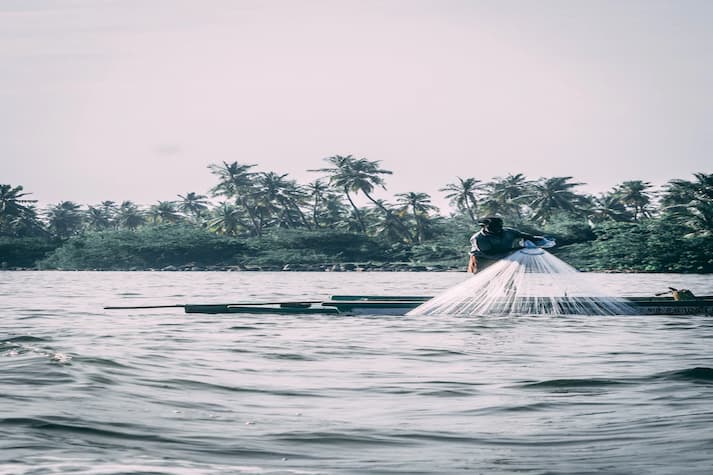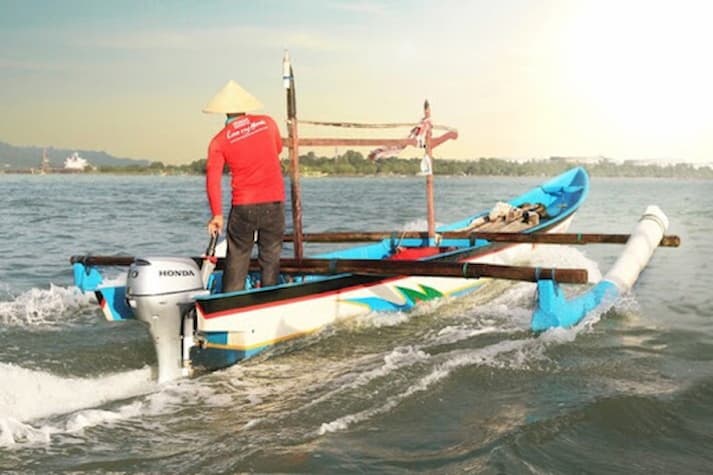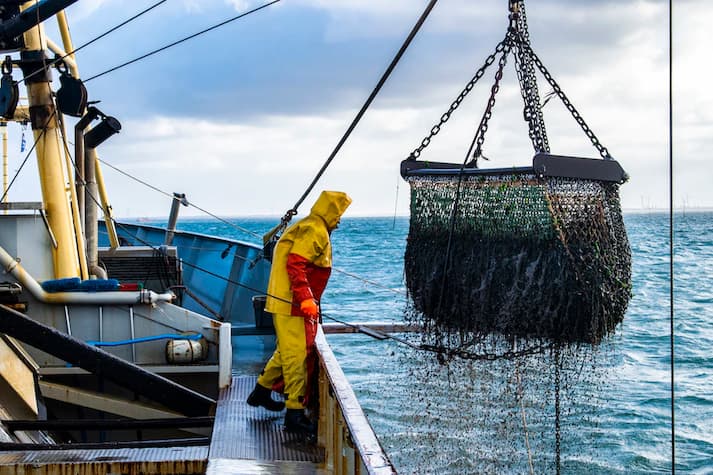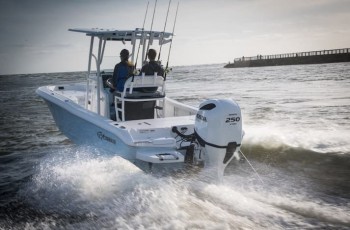7 Differences between Traditional and Modern Fishermen
27 April 2023

Many people assume that fishing is the same profession from time to time. However, many differences between traditional and modern fishermen are obvious. The equipment and the difference between the two can also be seen from the method of fishing used.
Sobat Honda will be invited to look further at the differences between traditional and modern fishermen. It continues, Sobat Honda will also be invited to understand what the two have in common. At first glance, the difference between the two lies in the use of modern equipment.
For example, ships that currently use outboard engines to go at a certain speed. In the past, ships were still driven by oars and natural wind, and now fishermen have switched to outboard engines.
When it comes to outboard engines, you can get the best quality when you buy them at Honda Power Products. Using a variety of quality components and advanced technology, Honda Power Product outboard engine can be used for a very long time.
Try to learn more about all the differences and similarities below!
Equation of Traditional and Modern Fishermen

Although there are many differences between traditional and modern fishing, there are similarities between the two. One of the most basic similarities is their common goal, fishing as a source of income. Find other similarities below.
1. Have the Same Purpose
Even though the technology used is different, both traditional and modern fishermen have the same goal: catching fish. As is well known, fish are an essential source of protein for human life, and fishermen play a role in meeting these needs.
2. Rely on Natural Factors
Both traditional and modern fishermen depend on natural factors to catch fish. They must pay attention to the weather, tides, sea conditions, and the location of the fish to catch fish effectively.
3. Using a Boat as a Means of Transportation
Although the equipment used to catch fish is different, traditional and modern fishermen use boats to reach fishing locations. The boats used usually vary, from traditional wooden boats to larger and more sophisticated modern boats.
4. Relying on Expertise and Experience
Traditional and modern fishermen rely on their skills and experience catching fish. Traditional fishermen usually inherit knowledge and skills from previous generations.
Meanwhile, modern fishermen receive official training and certification. But skill and experience remain essential factors in fishing effectively.
5. Contribute to the Local Economy
Traditional and modern fishermen alike contribute to the local economy through fishing. They can sell the caught fish to local markets or export them abroad. Therefore the role of fishermen in maintaining the sustainability of fish resources is very important.
6. Know fish resources
Both traditional and modern fishermen have an in-depth understanding of fish resources. They know the types, their habitat, and fish migration patterns. This knowledge is very important so fishermen can determine the right location to catch fish.
8. Applying Ethics in Fishing
Both traditional and modern fishermen both apply ethics in fishing. They value fish resources and ensure that the amount caught does not exceed the permitted limit to maintain the sustainability of fish resources. In addition, fishermen also try to dispose of the waste generated during fishing properly.
9. Facing Risks at Work
Traditional and modern fishermen alike face risks in their work. They have to fight against bad weather, big waves, and possible accidents while at sea. Therefore, fishermen's skills and experience are very important to deal with these risks.
10. Maintain Relations with the Surrounding Communities
Both traditional and modern fishermen maintain good relations with the surrounding community. They can collaborate in marketing, handling fish, and holding social events involving fishermen and local communities.
11. Maintaining the Sustainability of Fish Resources
Traditional and modern fishermen are equally responsible for maintaining the sustainability of fish resources. They strive to fish sustainably and ensure that the quantities caught do not exceed the permitted limits. In addition, they also participate in mangrove planting programs, beach cleaning, and other environmental awareness campaigns.
Differences between Traditional and Modern Fishermen

After recognizing the similarities, let's see the differences between the two. There are at least 7 differences that you can easily recognize, which are as follows.
1. Equipment
The most striking difference between traditional and modern fishing is the equipment used. Traditional fishermen generally only use wooden boats, nets, fishing rods, and other simple equipment.
Meanwhile, modern fishermen use more sophisticated equipment, such as motor boats, automatic nets, sonar, GPS, and drones, to monitor the presence of fish.
2. Fishing Methods
Traditional fishermen usually traditionally catch fish, such as using nets or fishing rods. Meanwhile, modern fishermen use more effective fishing methods such as trawls, purse seines, long lines and gill nets.
This method allows modern fishermen to catch larger quantities of fish more quickly.
3. Security
Traditional fishermen usually work at greater risk because they use simple equipment and less effective fishing methods. This makes them more vulnerable to danger while out at sea. Modern fishermen, on the other hand, have safer equipment and more effective fishing methods to reduce the risk of accidents.
4. Knowledge and Skills
Traditional fishermen generally learn the science of how to catch fish from generation to generation. Meanwhile, modern fishermen learn more from educational institutions such as fishery schools.
Many are studying the latest fishery technology to make the fishing process more effective. This makes modern fishermen superior in terms of knowledge and skills.
5. Work Patterns
Traditional fishermen generally only catch fish for their daily needs or to meet the local market's needs. On the other hand, modern fishermen are more profit-oriented on a large scale. They catch fish in large quantities to be sold to various local and international markets.
6. Business Scale
Modern fishermen usually have a larger business scale compared to traditional fishermen. They can catch more fish and market them to various places using more efficient transportation.
7. Environmental Impact
Although advanced equipment makes the fishing process more efficient, it often carries a greater risk of causing a greater environmental impact. Examples include marine pollution, damage to coral reefs, and overfishing.
Traditional fishermen are more sustainable and able to maintain existing natural resources. However, due to economic influences and technological developments, fishermen are often forced to fish excessively to make ends meet.
Regardless of the many similarities or differences between traditional and modern fishermen, the sophisticated equipment available today is still very efficient when used to catch fish. However, fishermen who use modern equipment must not forget to pay attention to environmental conditions.
Do not let the environment be damaged and kill much fish used as a livelihood source. That's why you have to choose the right equipment to meet your needs while being environmentally friendly.
An example is the use of quality outboard engines from Honda Power Products. Even though it is equipped with modern advanced technology, its use does not pollute the environment. The minimal amount of exhaust gas means you don't have to worry about using it in the long run.
You can travel anywhere quickly so you can catch fish before they disappear under the sea. Go straight to Honda Power Products and find the quality outboard engine you need!

HONDA POWER PRODUCTS INDONESIA
Honda Power Products menyediakan anda Mesin Serbaguna, generator, pemotong rumput, pemotong sikat, anakan, pompa air, dan Mesin tempel.






